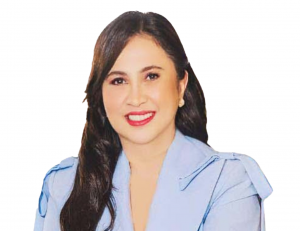54% of ALS enrollees unable to finish, Edcom notes

More than half of the learners enrolled in the Alternative Learning System (ALS) of the Department of Education (DepEd) were not able to complete the program last school year, indicating the challenges that remain in making such opportunities more accessible to the disadvantaged.
Citing the latest data from DepEd, the Second Congressional Commission on Education (Edcom 2) on Friday noted a high dropout rate in the program, with only 302,807 students, or only around 46 percent of the total 655,517 enrolled students completing the nontraditional course.
This means that about 54 percent were unable to finish the school year 2023-2024, many due to socioeconomic factors.
“Many learners face socioeconomic barriers that prevent them from finishing the program, such as the lack of financial support, the need to work, lack of interest, vices, marriage and bullying,” Edcom said a day after it held a meeting with DepEd, ALS teachers and stakeholders.
“These challenges result in high dropout rates, undermining the program’s mission to provide accessible education,” it added.
But the dismal completion rate is just one of the challenges hounding the DepEd’s parallel learning program for out-of-school and adults since it was enacted in 2020.
Target population
The program also failed to reach a significant number of out-of-school youth, as only 224,885 students are currently enrolled in the program, or a mere 9 percent of the target population, according to Edcom, a congressional body formed to review the country’s education policies.
The failure to get more learners to an alternative education also stems from funding constraints, as current legislations “complicate” the proper implementation of ALS and “restricts the allocation of necessary resources” at the local government level, Edcom said.
“While Republic Act 11510 (or the ALS Act) allows local school boards to use the Special Education Fund (SEF) for ALS programs, some LGUs (local government units) still adhere to DepEd-DBM-DILG Joint Circular No. 1, series of 2020, which limits their ability to charge ALS-related expenses to SEF,” it said.
The circular was about the guidelines set by the budget and interior departments on the use of SEF.
Special teachers
Under the circular, among the policies prioritized for funding under the SEF are feeding programs, vaccination and other health exams, sports development, operation and maintenance of school buildings, research and purchase of books.
Edcom also noted the lack of professional development training tailored to the needs of ALS teachers, the majority of whom are DepEd mobile teachers, district coordinators and volunteers.
An ALS teacher at DepEd’s school division office in Dasmariñas City, Cavite, was quoted as saying: “Our teachers are just regular senior high school teachers, and they do not know how to implement the ALS.”
“It’s the teacher that creates the sense of belonging that adolescents and youth are longing for,” Fr. Jerome Marquez, a member of Edcom’s standing committee said. “If we lose that, we lose the sense of education.”
2 programs
In December 2020, then President Rodrigo Duterte signed RA 11510, or the Alternative Learning System Act, into law, institutionalizing the nonformal education program through the DepEd.
The law also mandated the creation of teaching positions as well as the allocation of their corresponding salary grades to help strengthen the ALS Teachers Program.
There are currently two programs under the ALS: basic literacy, which aims to develop or enhance the reading, writing and numeracy skills of out-of-school youth; and accreditation and equivalency (A&E), which provides an opportunity for those who already have basic skills but were unable to complete education in formal schooling.
According to the latest DepEd data, an average of 600,000 students enroll into ALS yearly, most of them in the secondary level of A&E.

















